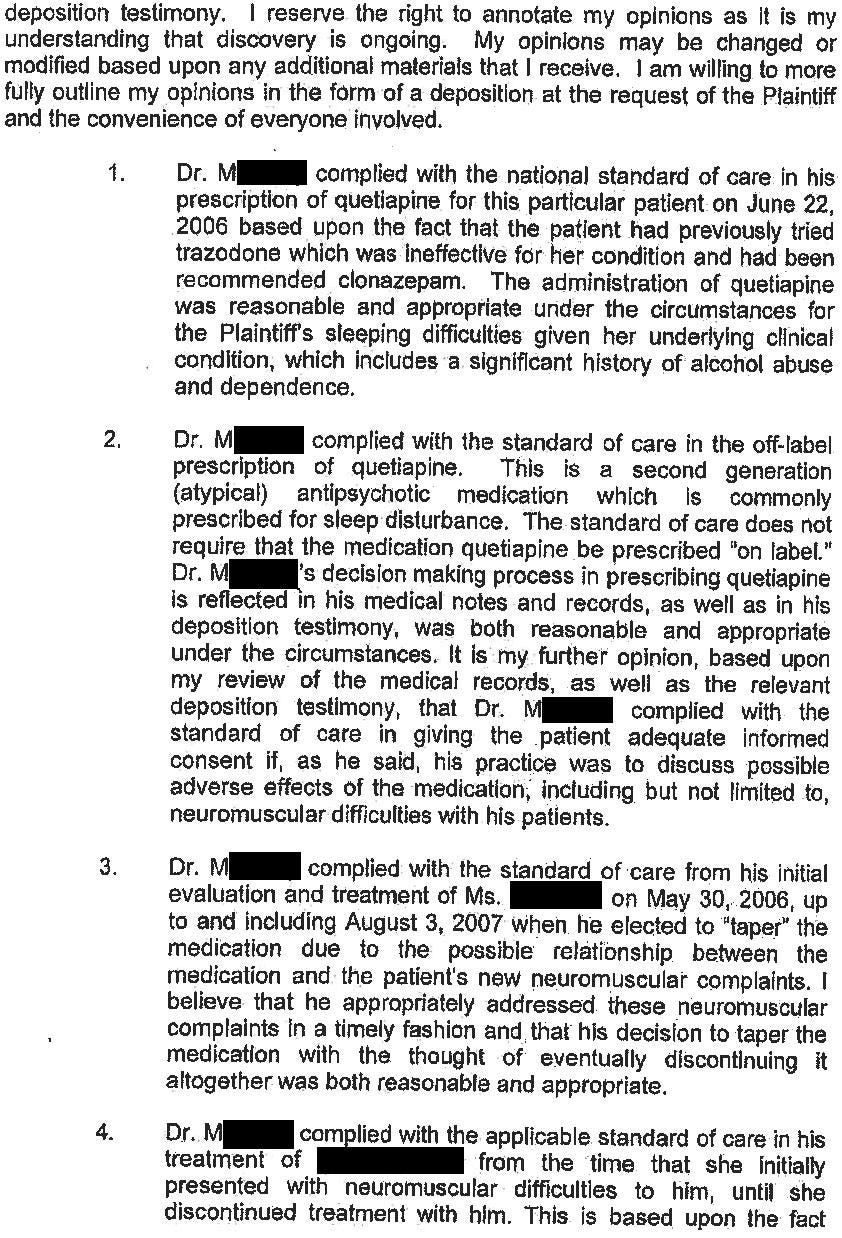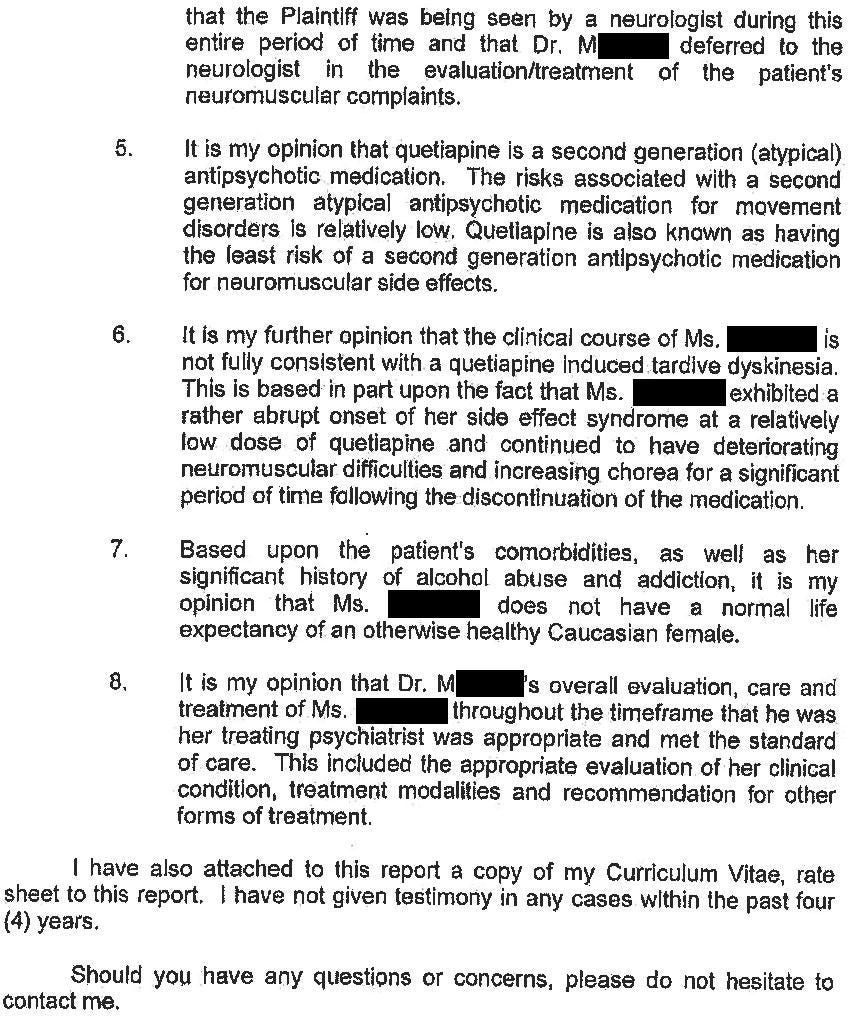Today's Med Mal Cast - Tardive Dyskinesia
-
48-year-old woman presented to a psychiatrist (Dr. M) in May 2006.
She was diagnosed with depression, anxiety, and alcohol dependence.
Trazadone was prescribed to address difficulty sleeping.
At a follow-up appointment, she noted that trazadone was not helping.
Dr. M switched her to quetiapine (Seroquel) to see if it would help her sleep.
10 months later (April 2007), she had another follow-up appointment.
She had a developed a limp.
Dr. M referred her to an orthopedist and neurologist.
In August 2007, she had another follow-up appointment with Dr. M.
She was still having difficulty walking, and this time noted muscle spasms.
Dr. M decided to discontinue quetiapine.
She was seen at a movement disorder clinic, and told that she may have developed tardive dyskinesia from taking quetiapine.
The patient filed a lawsuit against Dr. M, alleging that prescribing quetiapine for sleep was negligent, that he should have informed her of this risk, and should have tapered her off quetiapine much earlier.
The plaintiff’s expert report is shown here:
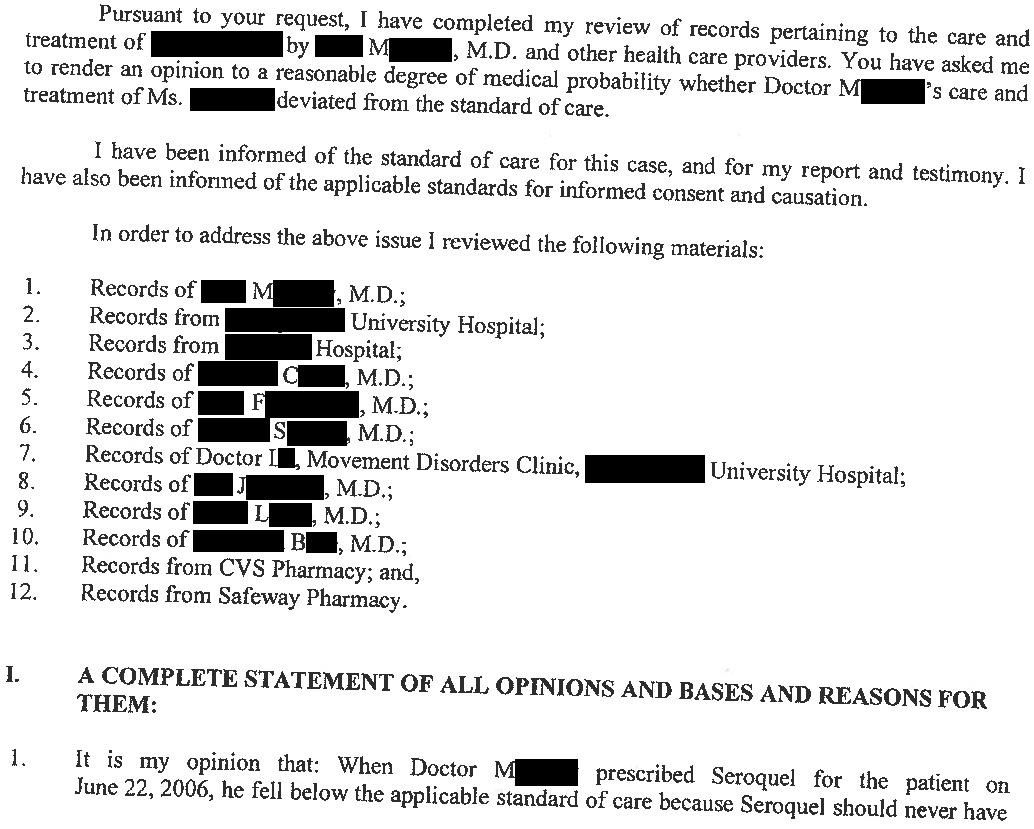
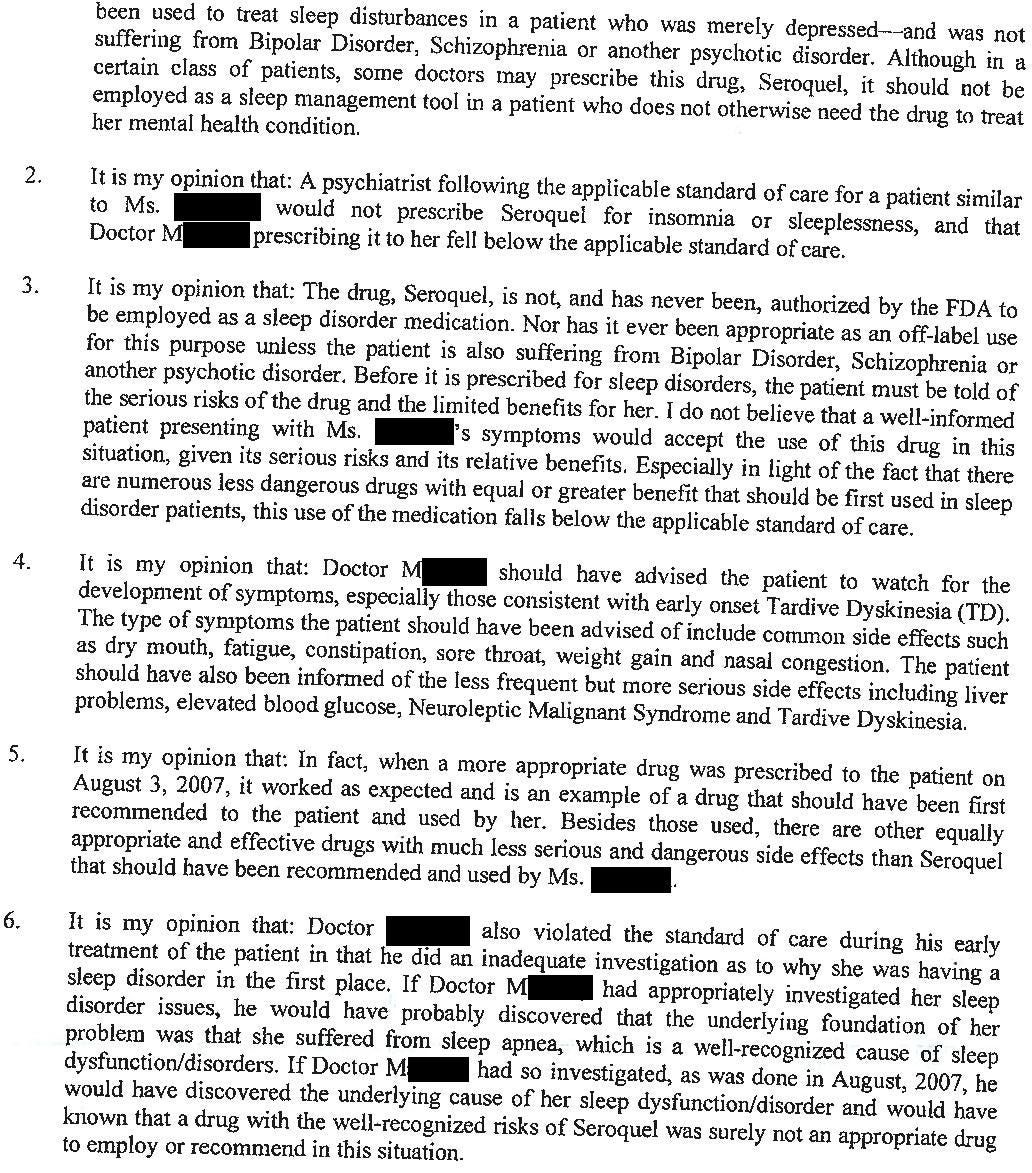
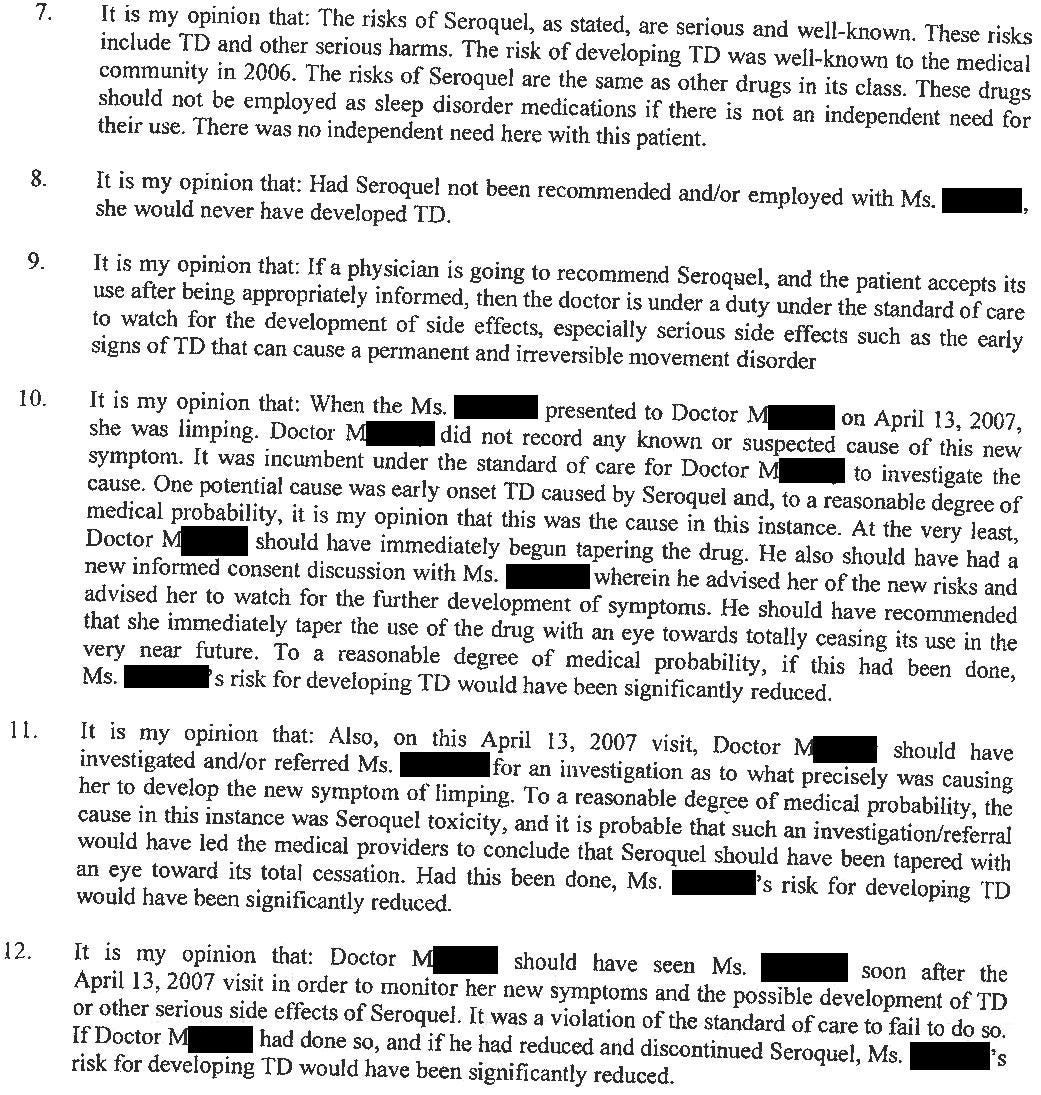
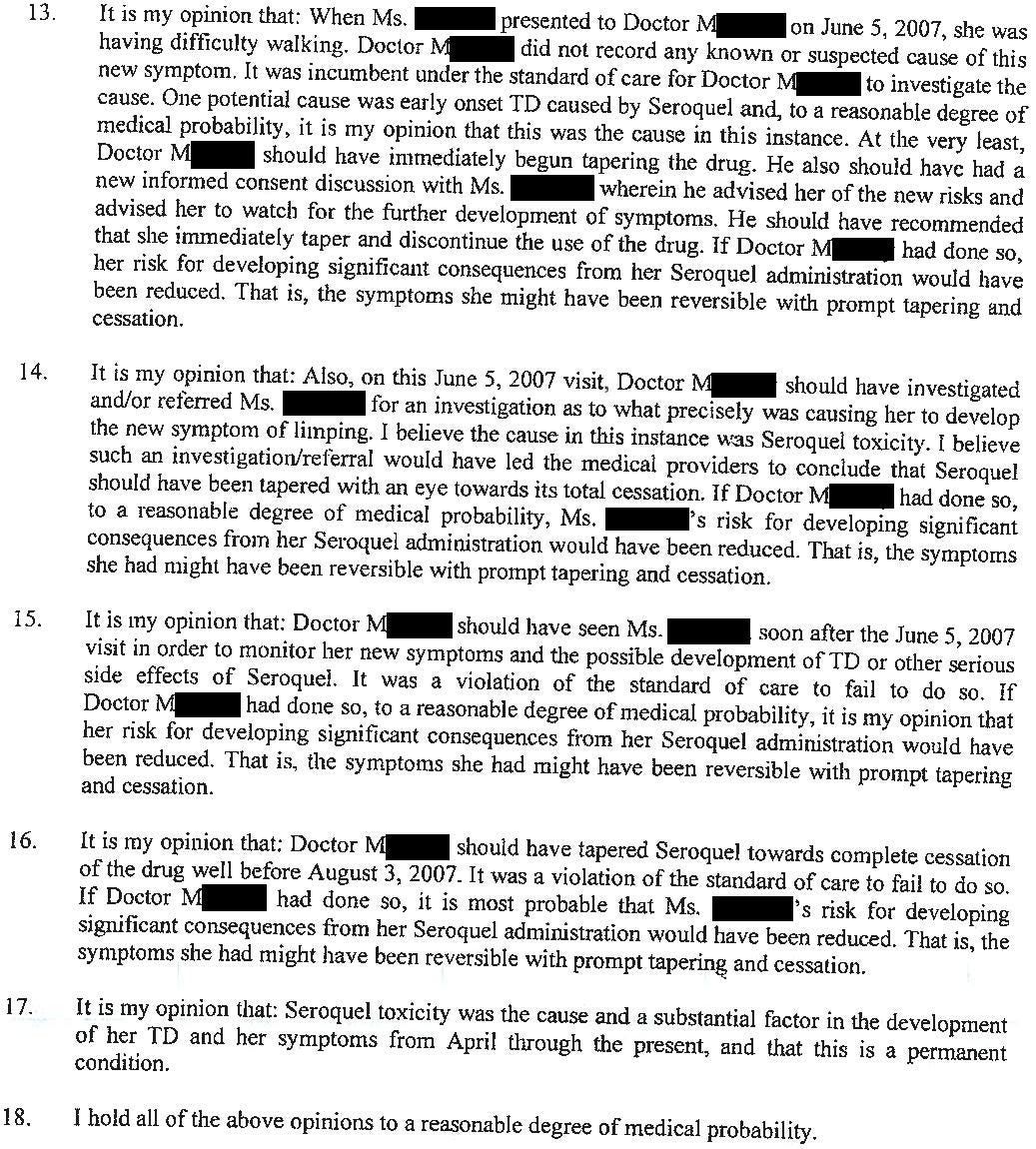
-
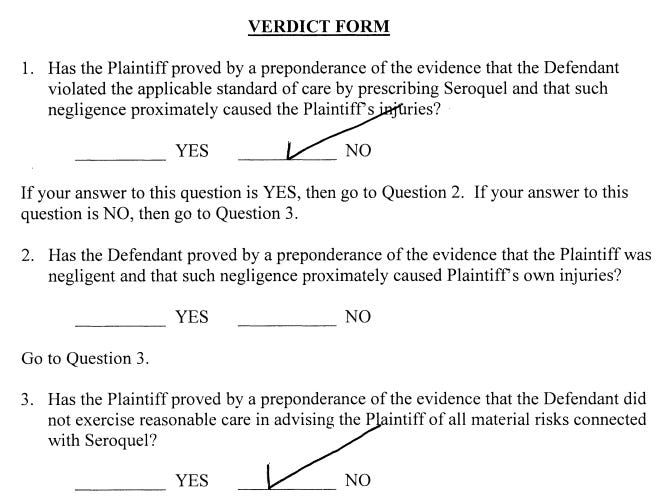
MedMalReviewer Analysis:
- The plaintiff did not make a very compelling case that the patient’s alleged tardive dyskinesia was caused by Seroquel. I reviewed this case with a consultation-liaison psychiatrist who noted several points:
a) Seroquel does not have significant D2 antagonism at the low doses used for sleep, and the patient was only on it for about a year. Higher doses of antipsychotics for longer periods of time have a much stronger association with tardive dyskinesia.
b) Limping would be a very unusual presentation of tardive dyskinesia. Abnormal movements of the face and tongue are much more common, and it doesn’t seem that the patient had these.
c) Use of Seroquel for sleep is very common and well within the standard of care.
- It's always reassuring to see a jury reject highly questionable accusations of negligence and decide in favor of a physician. In general, juries are very favorable to physicians and decide in our favor in the large majority of cases that go to trial.
- The plaintiff did not make a very compelling case that the patient’s alleged tardive dyskinesia was caused by Seroquel. I reviewed this case with a consultation-liaison psychiatrist who noted several points:
